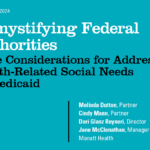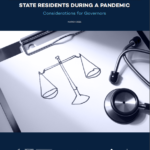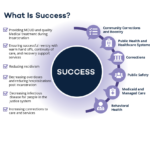The U.S. health care system is currently undergoing significant change. Much of the change happening today is focused on finding ways to pay for and deliver care that will lead to improved quality, better outcomes and lower costs. Governors know that improving the health of citizens is not only essential to ensuring they live productive lives, but also to controlling health care costs and balancing budgets; as a result, states are leading on a wide array of health reform initiatives.
NGA Resources

2026 State Health Policy Forecast

2025 Health and Human Services Policy Advisors Institute

Demystifying Federal Authorities: State Considerations for Addressing Health-Related Social Needs in Medicaid

State Strategies to Support Marketplace Plan Enrollment as the Medicaid Continuous Coverage Requirement Winds Down

State-Driven Initiatives to Support Moving to Value-Based Care in the Era of COVID-19

BALANCING MEDICAID BUDGETS AND SERVING STATE RESIDENTS DURING A PANDEMIC

State Strategies to Advance Health Data Interoperability

A Strong National Economy Depends on Strong States and Territories

Supporting A Trained Direct Care Workforce In Facility Settings During And After The Covid-19 Pandemic












